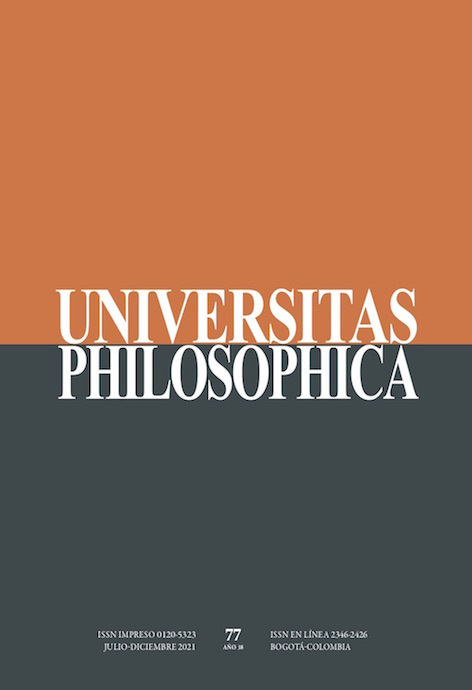Abstract
The question concerning the nature of “true philosophy” is a constant in Hume’s philosophical enquiry. The present paper revisits the Conclusion of Book I of the Treatise of Human Nature, a crucial piece of writing to understand his answer to that question. In this dramatic section, the author narrates the crisis he suffered after confronting his science of human nature with sceptical arguments. I interpret Hume’s narrative as a phenomenological description of the flux of passions, dispositions, and transformers which, after reflection, determine the transit from false to true philosophy, that will be justified by sceptical motives. Hume’s voyage shouldn’t be read only as an autobiographical experience since it represents the desired turn that should be followed by anyone who feels inclined towards philosophy, in order to discover both the utility and the pleasure derived from its practice.
Baier, A. (1991). A Progress of Sentiments: Reflections on Hume’s Treatise. Harvard University Press.
Calvo de Saavedra, Á. (2012). El carácter de la ‘verdadera filosofía’ en David Hume. Editorial Pontificia Universidad Javeriana.
Garret, D. (1997). Cognition and Commitment in Hume’s Philosophy. Oxford University Press.
Hume, D. (1969). The Letters of David Hume (J. Y. T. Grieg, Ed.). Clarendon Press.
Hume, D. (1983). Investigación sobre el conocimiento humano (J. de Salas Ortueta, Trad.). Alianza. [An Enquiry Concerning Human Understanding (1748) (T. L. Beauchamp, Ed.). Oxford University Press, 1999].
Hume, D. (1985). Mi vida. Cartas de un caballero a su amigo de Edinburgo (1776; 1745) (C. Mellizo, Trad.). Alianza.
Hume, D. (1995). Sobre el género ensayístico. En Sobre el suicidio y otros ensayos (pp. 25-30, C. Mellizo, Trad.). Alianza.
Hume, D. (1998). Tratado de la naturaleza humana (F. Duque, Trad.). Tecnos. [A Treatise of Human Nature (1739-40) (D. F. Norton & M. J. Norton, Eds.). Oxford University Press, 2000].
Livingston, D. W. (1989). Hume on the Natural History of Philosophical Consciousness. En P. Jones (Ed.), The “Science of Man” in the Scottish Enlightenment. Hume, Reid and his Contemporaries (pp. 68-84). Edinburgh University Press.
Williams, C. (1999). A Cultivated Reason. An Essay on Hume and Humeanism. Pennsylvania University Press.

This work is licensed under a Creative Commons Attribution 4.0 International License.
Copyright (c) 2021 Ángela Calvo de Saavedra


